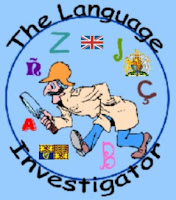 The ambiguity of terms such as “Down South”, “The Country as a Whole” and “This Country” serve only to reiterate the notion that Scotland is not a nation in itself.
The ambiguity of terms such as “Down South”, “The Country as a Whole” and “This Country” serve only to reiterate the notion that Scotland is not a nation in itself.
Since the Union was created, the Scots have, at least until recently, been willing to play the British game. The English however have just never played ball. When the Scots talk about “down South” they mean England, even though “down South” should mean Dumfries, Gretna, Galashiels or any southern Scottish town or region. The English don’t refer to France as “down South”, just as the Irish don’t refer to England as “over East”. Moreover, when the English talk about “up North” they mean no further than Carlisle!
The Scots would dutifully fill in “British” when asked their nationality on an official form, whilst their English counterpart would often tend to put “English” - not because they were making any kind of political statement, but because they really didn’t see any difference. Thus, when the Beatles sung about how “the English Army had just won the war” in A Day in the Life, they were not talking about any war prior to 1707. It was simply that, for so many people in England, “English” and “British” are interchangeable terms. Hence, they’ll order “English” food abroad, complain about how much it costs them to change “English” money and how the “English” weather is so terrible. The Scots, however, will say they’re from Scotland to anyone who asks, but will thereafter refer to everything “back home” as British.
The terminology that Scots themselves use reinforces their sense of being little more than a region. Aside from their misuse of expressions like “down South”, they use terms such as "national", "the nation", "the country" and “the country as a whole” to signify the UK. Perhaps a new low was hit by Ford Kiernan and Greg Hemphill on their show Still Game when, in a spoof television weather report, the reporter talked of “Scots throughout the country” rather than actually just saying Scotland. It was highly symbolic of just how ingrained the idea of Scotland as an inextricable part of Britain is for many people. This aside, it is interesting to note that the name Britain historically never actually referred to the island as a whole. Rather, Britannia was the name given by the Romans to what is today known as England and Wales*. Scotland, however, was called Caledonia and deemed to be separate.
* Modern day England and Wales were once inhabited by a Celtic people know as the Britons. They were the ancestors of the people known today as the Welsh. When the Anglo-Saxons (the ancestors of today’s English) arrived in Britain from northern Germany, they drove the native Britons westwards to what is now Wales and Cornwall. The name “Wales” actually comes from “Wealas”, the Old English word for foreigners, as the native Welsh were indeed foreign to the invading English. Other Celtic Britons fled to France, forming the region known as Brittany. It is for this reason that the language of Brittany, Breton, is so closely related to Welsh and Cornish.
The Scots would dutifully fill in “British” when asked their nationality on an official form, whilst their English counterpart would often tend to put “English” - not because they were making any kind of political statement, but because they really didn’t see any difference. Thus, when the Beatles sung about how “the English Army had just won the war” in A Day in the Life, they were not talking about any war prior to 1707. It was simply that, for so many people in England, “English” and “British” are interchangeable terms. Hence, they’ll order “English” food abroad, complain about how much it costs them to change “English” money and how the “English” weather is so terrible. The Scots, however, will say they’re from Scotland to anyone who asks, but will thereafter refer to everything “back home” as British.
The terminology that Scots themselves use reinforces their sense of being little more than a region. Aside from their misuse of expressions like “down South”, they use terms such as "national", "the nation", "the country" and “the country as a whole” to signify the UK. Perhaps a new low was hit by Ford Kiernan and Greg Hemphill on their show Still Game when, in a spoof television weather report, the reporter talked of “Scots throughout the country” rather than actually just saying Scotland. It was highly symbolic of just how ingrained the idea of Scotland as an inextricable part of Britain is for many people. This aside, it is interesting to note that the name Britain historically never actually referred to the island as a whole. Rather, Britannia was the name given by the Romans to what is today known as England and Wales*. Scotland, however, was called Caledonia and deemed to be separate.
* Modern day England and Wales were once inhabited by a Celtic people know as the Britons. They were the ancestors of the people known today as the Welsh. When the Anglo-Saxons (the ancestors of today’s English) arrived in Britain from northern Germany, they drove the native Britons westwards to what is now Wales and Cornwall. The name “Wales” actually comes from “Wealas”, the Old English word for foreigners, as the native Welsh were indeed foreign to the invading English. Other Celtic Britons fled to France, forming the region known as Brittany. It is for this reason that the language of Brittany, Breton, is so closely related to Welsh and Cornish.
No comments:
Post a Comment
Note: Only a member of this blog may post a comment.